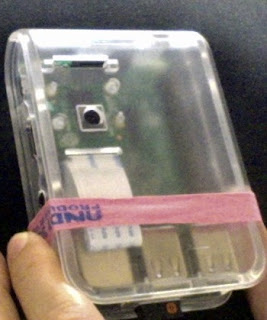My Pi 3 Install Log (7): Camera module with python or from command line
In order to use OpenCV, I need a camera.
Although a normal USB camera works, I want to try the official one for these reasons:
- dedicated camera port
- light weight
- look cool putting the camera inside the enclosure

Following this page:
Getting started with picamera | Raspberry Pi Learning Resources
$ raspistill -o image.jpg
# to see the pictures, i noticed I don't have a pic viewer yet.
# Install few more missing (non-camera-related) packages.
$ sudo apt-get install vim # my favourite text editor
$ sudo apt-get install gpicview # remember my jessie is a lite, no lxdm applications were installed
$ sudo apt-get install exfat-utils exfat-fuse # to support exfat, a n file system works for both linux and osx
# to see the pictures, i noticed I don't have a pic viewer yet.
# Install few more missing (non-camera-related) packages.
$ sudo apt-get install vim # my favourite text editor
$ sudo apt-get install gpicview # remember my jessie is a lite, no lxdm applications were installed
$ sudo apt-get install exfat-utils exfat-fuse # to support exfat, a n file system works for both linux and osx
$ sudo apt-get install shasum # for checksum
* * *
Before trying the code on this page:
http://picamera.readthedocs.io/en/release-0.6/quickstart.html
Of course, also the python-bind camera package
$ sudo apt-get install python3-picamera
Now edit this file and save as 'camera.py'
and try
$ python3 camera.py
On the monitor shows a clear 8MB pixel video with less than 1/4 sec lagging. :)
Add this line after the sleep line to take a photo:
camera.capture()
Labels: OpenCV, PiCamera, Raspberry Pi

0 Comments:
Post a Comment
<< Home